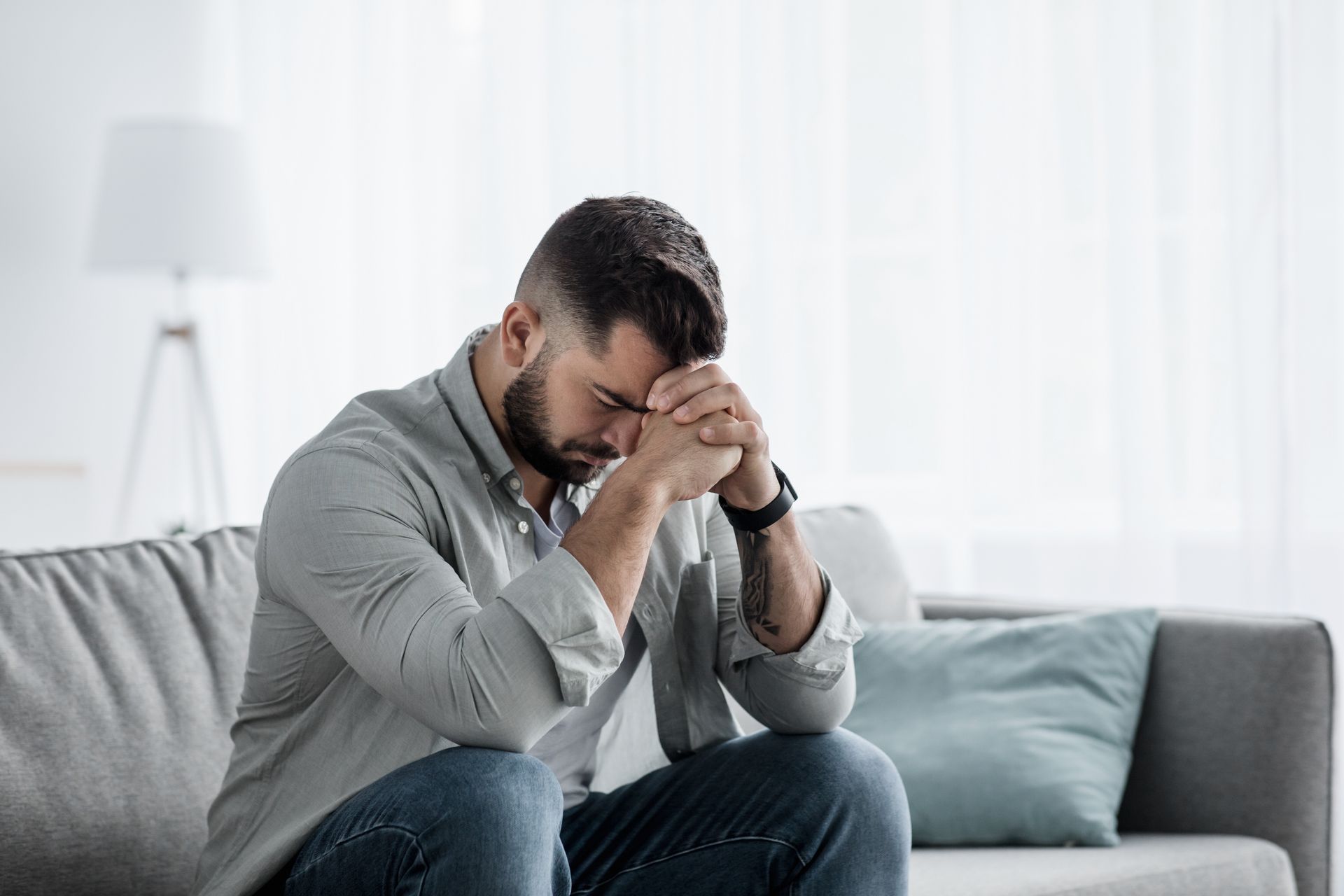Is Your Worrying Making You Sick?

Everyone experiences it occasionally; it is a recognizable tense feeling accompanied by a pounding heart, rapid breathing, perspiration, and even trembling. Being anxious is common and can even be beneficial, but when it becomes more frequent or starts to interfere with daily living, there may be more going on.
A little worry can sometimes develop into something much more, and it can even lead to bodily problems that you need to learn to manage.
- Why We Worry
- Does Worrying Make You Sick?
- Worrying's Impact on Physical and Mental Health
- Ways to Alleviate Worrying
- Final Thoughts
Let’s get started
Why We Worry
We can worry about pretty much anything. We want to make sure that anything works out successfully when a future result is uncertain. Most of the time, even after taking all reasonable precautions to avoid a negative outcome, we can never completely rule out the possibility that anything could go wrong. Perhaps it's missing a flight, being ill, making a mistake at work, or losing a loved one. The likelihood that these things will occur is not entirely under our control.
When we struggle to accept this ambiguity, we may go back to the issue in our minds and keep going over it, imagining every "what if" and how we might handle it—we are attempting to control an illogical circumstance. Worrying about ambiguous future events makes it worse.
Does Worrying Make You Sick?
It can make you sick. When you live in worry, you probably don’t see it as a problem. You get used to the sensation. However, it can take its toll on your mental and physical state. Worry is a typical reaction to unknown circumstances. Worrying is typically your body's natural reaction to a situation that you need to control. But when you worry excessively, your nervous system doesn't return to normal when that new or strange scenario has passed.
People who experience persistent worries or excessive worry are, regrettably, impacted on a daily basis. Even while they are performing routine, commonplace tasks, their neurological system is on high alert.
If you worry too much, you might experience:
- worry about the past, present, and future on a daily basis
- fear that seemingly unimportant physical problems are symptoms of a major illness
- pondering or brooding that is dysphoric
- dread of experiencing a panic attack
- obtrusive and frightful ideas
- an obsessive desire for confirmation
Even though worrying too much can make you feel anxious, there are several differences between worry and anxiety that you should be aware of. Anxiety and concern in excess can be extremely crippling. For other people, worry consumes every thought, causing harm to healthy relationships, behavioral patterns, careers, and other aspects of life.
Worrying's Impact on Physical and Mental Health
The answer to the question, "Can worrying make you sick?" is emphatically yes. Unfortunately, the phrase "worried sick" pretty much sums up what's going on. Your body may have problems as a result of persistent and ongoing concern, both physically and mentally.
Worrying is related to stress. While some stress is beneficial, too much of it can cause great harm. However, excessive stress can weaken your immune system and make you more susceptible to illness. Long-term stress can also raise your chance for developing a number of illnesses, including as cancer and heart disease. According to a study, stress may be the cause of 60 to 80 percent of healthcare visits.
Ways to Alleviate Worrying
Finding a solution to stop worrying might be challenging when under constant strain or stress. These choices are just the beginning, but they merit investigation.
Speak with a professional
It's imperative that you speak with a doctor or
psychiatric care specialist if you believe that your ongoing anxiety has made you physically ill. They'll probably perform a physical examination on you and inquire about your background and medical history.
They may perform bloodwork if necessary to rule out any physical health concerns. The signs of excessive worry can be identified and treated by many primary care physicians. In that case, they will direct you to another provider.
Obtain fresh air
Even though you might not feel like going outside when you're feeling overwhelmed, even a little stroll might help your body produce more endorphins. These endorphins are in charge of lowering stress levels and enhancing feelings of wellbeing.
Meditate
There's a good reason why so many individuals use meditation to decompress. To reduce stress and anxiety, people who meditate use mindfulness practices and guided breathing. Beginners can learn how to meditate in a variety of ways, including through books, apps, podcasts, and online videos
Final Thoughts
It’s not easy to stop worrying about things. Fortunately, there are ways to receive help if you realize that your excessive worrying is beginning to negatively impact your physical or mental health. First, don't be afraid to ask a friend or member of your family for guidance. Make an appointment with your doctor for a checkup at any time. Now can be a good time to start meditating, writing, or practicing yoga for stress relief if you haven't already. You may center yourself and effectively relieve stress with these and other self-care practices.











